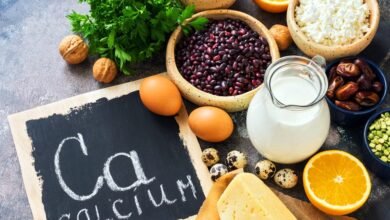The Verdict: Could You Ever “Boost” Your Immune System?

Do you know the Verdict: Could You Ever “Boost” Your Immune System? your body’s immune system, which is made up of a network of cells, tissues, and organs, aids in the fight against diseases, illnesses, and infections. It is effective to identify and guard against these outside intruders that can harm you.
Read More: How to Treat a Sore Behind If You Have IBD
According to the Cleveland Clinic, when your immune system is in good shape, it can halt or fight off pathogens or foreign cells that could harm you. It makes it natural that you would want to know how to maintain a healthy immune system.
But is there anything you can do to strengthen your immune system, or is this merely a marketing ploy for vitamins, packaged drinks, and other health goods?
The Claim About Boosting Your Immune System

You have probably seen advertisements for products like vitamins that promise to strengthen your immune system. And in a climate where numerous respiratory viruses are circulating simultaneously (think COVID-19, RSV, and the flu), it can be alluring to believe those kinds of claims, especially if they guarantee that you won’t get sick or that you’ll recover from illness more quickly.
According to Christine Kingsley, director of health and wellness at the Lung Institute in Manchester, Connecticut, “the idea of boosting or strengthening the immune system is problematic because it reinforces the idea that immunity is like a muscle we can build and train with supplements.”
The Scientific Research on Healthy Immune Systems

Research shows that one of the main motivations for using nutritional supplements is the assumption that you may boost your immune system, although certain marketing promises can be deceptive.
Your immune system is made up of a variety of components, each of which contributes to the body’s defense against invaders that could injure you or make you sick. The immune system is composed mostly of the following components, according to the Cleveland Clinic:
- Black blood cells
- lymph glands
- Tonsils, adenoids, and the spleen
- Thymus
- bones’ marrow
- Skin, mucous membranes, and
- intestines and stomach
This system should work well, but you don’t absolutely need to “boost” it. Furthermore, there isn’t much proof that certain behaviors or foods might strengthen the immune system. Kingsley claims that she favors the phrase “nourish the immune system,” which is more in line with what is currently understood about how diet and healthy lifestyle choices affect the body’s numerous systems, including immunity.
The Cleveland Clinic and the Centers for Disease Control and Prevention (CDC) provide the following guidelines to boost immune system performance:
- Consume a nutritious, balanced meal to give your body the nutrients it needs to operate.
Engage in regular exercise
Keep a healthy weight. - Obtain enough rest (at least seven hours per night for adults)
Prevent or stop smoking
Limit or avoid alcohol
Learn coping mechanisms for stress
The Top Nutrients for Immunity

A few micro and macronutrients, according to Meyer, can support immunological health.
According to Mayo Clinic, the body contains zinc, a vitamin that supports the immune system and metabolism. Generally speaking, if you consume enough zinc from your food, you won’t require a supplement. At the first indication of a cold, Meyer advises using zinc lozenges or taking zinc tablets. Avoid intranasal zinc, which is linked to a loss of smell, says the National Center for Complementary and Integrative Health.
The immune system benefits from vitamin D, which the body obtains via food and exposure to the sun. One study looked at the possible advantages of vitamin D supplementation in lowering COVID-19 infection and mortality rates in U.S. veterans. Researchers discovered a link between vitamin D and decreased illness severity and COVID-19 dissemination. Participants in the study who had low levels of vitamin D experienced greater benefits from supplementation than those who had higher levels of vitamin D prior to taking the supplement.
Read More: How a Dietitian Balances Food and Health for Kwanzaa
According to Cleveland Clinic, omega-3 fatty acids, often known as good fats, are present in some plants and fatty fish and are crucial for supporting the health of the body’s cells. Omega-3 supplements may lessen the likelihood of COVID-19 infection and shorten the duration of symptoms, according to one review, which Meyer claims may boost immunological function.
if you’re not receiving enough regular quality sleep, trying to change your sleeping patterns will help your immune system work more effectively.
The Final Word on Whether You Can Boost Your Immune System
Your immune system is aided in its activity by healthy habits for your body and mind as well as specific nutrients, but this is not necessarily a bad thing.
According to Kingsley, the objective should be to meet nutritional requirements in order to give your body the fuel it needs to maintain immune system function.
The best bet for maintaining a strong immune system, according to Meyer, is to eat a variety of fruits and vegetables, whole grains, lean proteins, and unsaturated fats and oils.







